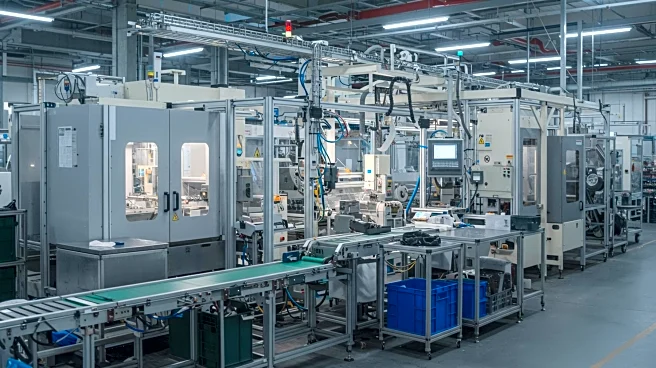What's Happening?
President Trump has initiated a trade war with the aim of revitalizing U.S. manufacturing through increased tariffs on goods from over 100 countries. The administration claims these tariffs will make imported goods more expensive, thereby encouraging domestic production. However, many economists are skeptical about the effectiveness of this approach. Critics argue that the tariffs could reduce the competitiveness of U.S. manufacturing by increasing production costs, potentially leading to a decrease in manufacturing employment. The inconsistency in policy implementation and legal challenges to the tariffs further complicate the situation, casting doubt on the potential for a manufacturing resurgence.
Why It's Important?
The impact of President Trump's tariffs on the U.S. economy is significant, as they could reshape the manufacturing landscape. While the administration hopes to boost domestic production, the increased costs may harm industries reliant on imported materials, such as the auto industry. The tariffs could lead to higher prices for consumers and reduced competitiveness for U.S. manufacturers in the global market. The broader implications include potential shifts in trade relationships and economic strategies, affecting various stakeholders from corporate executives to factory workers.
What's Next?
The future of President Trump's tariff strategy remains uncertain, with ongoing legal challenges and questions about its long-term viability. The U.S. Court of International Trade has ruled the blanket tariffs illegal, a decision currently under appeal. The administration's approach contrasts with previous industrial policies that targeted specific sectors, raising concerns about the sustainability of the current strategy. Stakeholders, including economists and industry leaders, will continue to monitor the situation, assessing the potential for investment and job creation in the manufacturing sector.
Beyond the Headlines
The tariffs raise ethical and strategic questions about the role of protectionism in modern economic policy. The focus on tariffs as a tool for economic growth may overlook the importance of fostering competition and innovation within industries. The potential for increased automation and technological advancements in manufacturing further complicates the narrative, as these factors could reduce the need for human labor, challenging the notion of a manufacturing renaissance.









